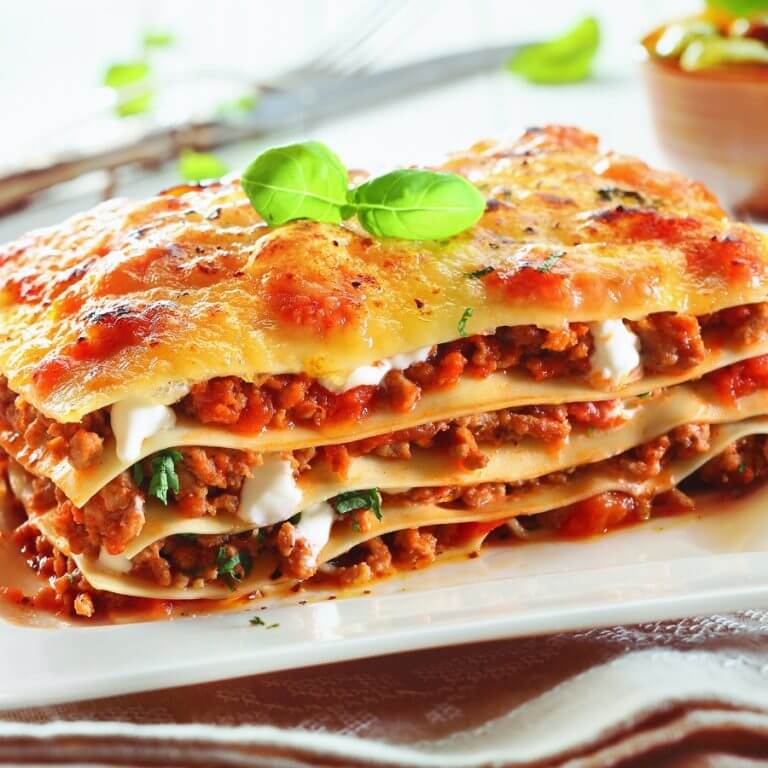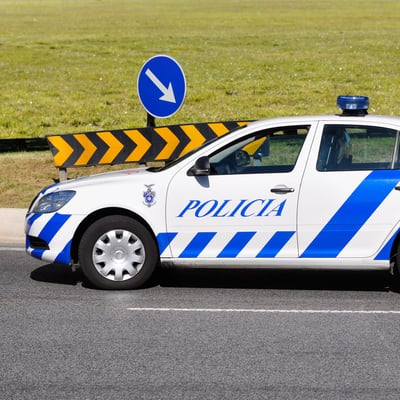1
00:00:00,097–> 00:00:03,364
Isabel: Olá, Tiago. Entra, não tenhas vergonha!
{{Isabel: Hello, Tiago. Come in, don’t be shy!}}
2
00:00:07,128 –> 00:00:11,962
Tiago: Olá, com licença. Onde posso deixar o casaco?
{{Tiago: Hi, excuse me. Where can I leave my coat?}}
3
00:00:12,620 –> 00:00:14,698
Isabel: Mete aqui pendurado no cabide.
{{Isabel: Put it here (hanging) on the hanger.}}
4
00:00:15,317 –> 00:00:20,992
Tiago: Obrigado. Epá! Cheira bem, o que fizeste?
{{Tiago: Thank you. Whoa! Smells good, what did you make?}}
5
00:00:21,678 –> 00:00:22,839
Isabel: Fiz lasanha.
{{Isabel: I made lasagna.}}
6
00:00:23,225 –> 00:00:27,054
Tiago: Aquela com bacon crocante pelo meio?
{{Tiago: The one with the crispy bacon in the middle?}}
7
00:00:27,508 –> 00:00:28,717
Isabel: Essa mesmo.
{{Isabel: That same one.}}
8
00:00:29,229 –> 00:00:31,733
Tiago: Acho que devias fazer outra.
{{Tiago: I think you should make another one.}}
9
00:00:32,043 –> 00:00:32,961
Isabel: Porquê?
{{Isabel: Why?}}
10
00:00:33,251 –> 00:00:35,726
Tiago: Porque eu vou comer uma travessa inteira.
{{Tiago: Because I’m going to eat a whole platter.}}
11
00:00:36,103 –> 00:00:41,111
Isabel: Oh! Não sejas parvo, Tiago. Vá, anda sentar-te.
{{Isabel: Oh! Don’t be silly, Tiago. Come on, sit down.}}
12
00:00:41,682 –> 00:00:43,199
Tiago: Pronto, está bem…
{{Tiago: Okay, fine…}}
13
00:00:43,644 –> 00:00:46,873
Isabel: Dá cá o teu prato. Isto chega para ti?
{{Isabel: Give me your plate. Is this enough for you?}}
14
00:00:47,202 –> 00:00:49,522
Tiago: Mete só mais um bocado, por favor.
{{Tiago: Give me just a little more, please.}}
15
00:00:49,938 –> 00:00:51,688
Isabel: És mesmo guloso.
{{Isabel: You’re really greedy.}}
16
00:00:52,200 –> 00:00:57,460
Tiago: Olha, estás a queixar-te mas tu é que fazes uma lasanha muito boa.
{{Tiago: Well, you’re complaining but you make a very good lasagna.}}
17
00:00:58,185 –> 00:01:00,437
Isabel: Para a próxima comes a comida do cão!
{{Isabel: Next time you’ll eat the dog’s food!}}
18
00:01:01,114 –> 00:01:02,613
Tiago: Talvez seja boa.
{{Tiago: Maybe it’s good.}}
19
00:01:03,222 –> 00:01:04,614
Isabel: Come isso e cala-te.
{{Isabel: Eat that and shut up.}}
20
00:01:05,175 –> 00:01:10,743
Tiago: Ahahah então e olha lá, como anda a Maria?
{{Tiago: Hahaha, so look, how is Maria doing?}}
21
00:01:11,159 –> 00:01:15,887
Isabel: Anda bem, está a terminar o mestrado. Não tens falado com ela?
{{Isabel: She’s doing okay, she’s finishing her master’s degree. Haven’t you talked to her?}}
22
00:01:16,467 –> 00:01:18,323
Tiago: De vez em quando falo.
{{Tiago: Once in a while I talk.}}
23
00:01:18,894 –> 00:01:25,864
Isabel: Olha, ela recomendou-me um filme. Ela diz ser muito bom mas ainda estou para ver.
{{Isabel: Well, she recommended a movie to me. She says it’s very good but I haven’t seen it yet.}}
24
00:01:26,386 –> 00:01:29,248
Tiago: Ela sugere sempre filmes estranhos.
{{Tiago: She always suggests weird movies.}}
25
00:01:29,615 –> 00:01:34,469
Isabel: Pois, verei o que sairá desta vez. Queres ver a seguir?
{{Isabel: Yeah, I’ll see what happens (“what will come out”) this time. Do you want to watch it next?}}
26
00:01:34,933 –> 00:01:39,283
Tiago: Pode ser. Não tenho nada para fazer depois do jantar.
{{Tiago: Sure. I have nothing to do after dinner.}}
27
00:01:39,815 –> 00:01:44,137
Isabel: Ainda bem, queres que faça pipocas ou a lasanha chega?
{{Isabel: Good, do you want me to make popcorn or is lasagna enough?}}
28
00:01:44,920 –> 00:01:47,723
Tiago: Olha que umas pipocas não ficavam mal…
{{Tiago: Well, some popcorn wouldn’t hurt…}}
 We respect your privacy and have a ZERO TOLERANCE for spam.
We respect your privacy and have a ZERO TOLERANCE for spam.
















hello,
“mas tu é que fazes uma lasanha”, is this correct? Could we say “mas é que tu fazes uma lasanha”? Thanks for explaining.
Yes, it’s correct. But you could actually say it your way too in this context. Both expressions are just a very casual and emphatic way of saying that she makes a great lasagna.
sorry again, what i don’t understand is why we find “tu é” instead of “tu és”. Thanks for the answer
Ah, got it. That’s because this “é” is not coupled to the pronoun “tu” – it’s only here as part of the expression “é que”, which is there to add emphasis. That’s why both ways are acceptable (“tu é que” and “é que tu”); because this “é que” works as a single unit, added optionally, and with some freedom to move around the pronoun 🙂 You also see it, for example, in questions such as “Quanto é que custa?” (How much does it cost?). You can just as well say “Quanto custa?”, with no change in meaning or grammatical correctness.